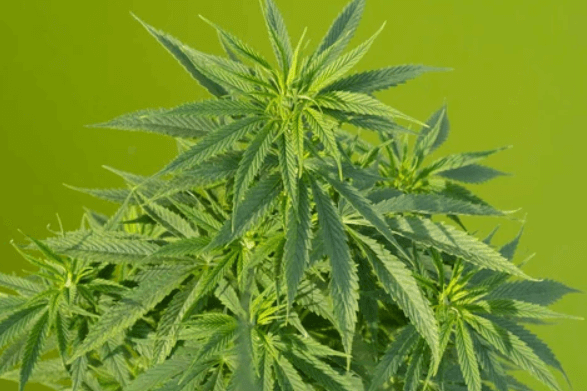Is Cbd Haram

The classification of CBD as haram or permissible within Islamic law invites a nuanced examination of both its properties and the underlying principles of Islamic jurisprudence. As a non-psychoactive compound derived from cannabis, CBD presents potential health benefits that many argue align with the Islamic emphasis on well-being. However, concerns regarding its production, association with intoxicants, and varying scholarly interpretations complicate this discourse. The critical factors of intention and cultural context further influence individual perspectives, leaving us to ponder: how do these elements converge to shape the broader understanding of CBD’s status in the Islamic community?
Understanding CBD and Its Origins
Understanding the origins and biochemical properties of cannabidiol (CBD) is essential for evaluating its religious permissibility within Islamic jurisprudence.
CBD origins trace back to ancient civilizations, where it was historically used for medicinal and therapeutic purposes.
These historical uses provide a framework for analyzing its contemporary applications and potential benefits, fostering an informed discussion on whether CBD aligns with Islamic ethical and spiritual values.
See also: How Long Does Edible Cbd Stay in System
The Islamic Perspective on Cannabis
The Islamic perspective on cannabis encompasses various interpretations of religious texts, which influence the understanding of its permissibility.
Additionally, health implications and legal considerations surrounding cannabis use play a crucial role in shaping opinions within the Muslim community.
Analyzing these factors is essential for a comprehensive evaluation of whether cannabis, including its derivatives, can be deemed halal or haram.
Religious Text Interpretations
Examinations of religious texts reveal a complex interplay between Islamic jurisprudence and the use of cannabis, prompting scholars to investigate the substance’s permissibility within the framework of Sharia law.
Diverse religious interpretations highlight ethical considerations regarding intoxication and harm.
Consequently, the debate continues, as some argue for its potential benefits, while others maintain strict prohibitions grounded in traditional Islamic teachings.
Health and Legal Considerations
While the permissibility of cannabis in Islamic jurisprudence remains contentious, health considerations and legal implications play a crucial role in shaping the discourse surrounding its use within Muslim communities.
Advocates highlight potential health benefits, such as pain relief and anxiety reduction, yet legal regulations vary significantly across regions.
Consequently, Muslims must navigate these complex intersections of health, legality, and religious adherence with caution.
The Difference Between CBD and THC
The distinction between cannabidiol (CBD) and tetrahydrocannabinol (THC) lies primarily in their chemical structures and psychoactive effects.
While CBD is non-psychoactive and is often associated with therapeutic benefits, THC is the compound responsible for the intoxicating effects commonly associated with cannabis.
Understanding these differences is crucial for evaluating their respective implications within an Islamic context regarding permissibility and health.
Chemical Structure Comparison
Understanding the chemical structure of cannabidiol (CBD) and tetrahydrocannabinol (THC) is essential for discerning their distinct effects and legal classifications within various religious and ethical frameworks.
The molecular structures of these compounds exhibit unique chemical properties; CBD contains a hydroxyl group that influences its non-psychoactive nature, while THC’s structure facilitates psychoactivity.
This highlights the importance of these differences in ethical discussions surrounding use.
Psychoactive Effects Explained
The distinction between CBD and THC becomes particularly relevant when examining their psychoactive properties, as these differences significantly influence perceptions of their permissibility within various religious and ethical contexts.
While THC induces euphoria and alters mental health states, CBD lacks such psychoactive effects, promoting a sense of calm without impairment.
This distinction may guide individuals seeking therapeutic benefits in accordance with their beliefs.
Arguments for CBD Being Permissible
Frequently regarded as a non-intoxicating compound, CBD is often considered permissible within Islamic jurisprudence due to its therapeutic benefits and absence of psychoactive effects.
Advocates argue that ethical consumption of CBD aligns with the principles of health and well-being.
Personal testimonials further support its use, highlighting positive outcomes, thereby reinforcing the notion that CBD can be beneficial and compliant with Islamic values.
Concerns About CBD Use
Concerns regarding the use of CBD within the Islamic community often center on its potential association with intoxicants and the lack of comprehensive regulatory oversight in its production.
Cultural perceptions may amplify fears about its effects, leading to ethical considerations regarding its use.
These factors necessitate careful examination to ensure that individuals can make informed decisions while adhering to religious principles and personal freedom.
Scholarly Opinions on CBD
Scholarly opinions on CBD within the Islamic context vary significantly, reflecting a spectrum of interpretations regarding its permissibility and ethical implications in light of religious teachings.
Academic perspectives often consider the source of CBD, its psychoactive properties, and potential health benefits.
Ethical considerations include the impact on well-being and societal norms, prompting diverse conclusions among scholars on the acceptability of CBD use in Islam.
The Role of Intention in Use
In the context of Islamic jurisprudence, the intention behind the use of CBD plays a crucial role in determining its permissibility, as actions are often assessed based on the purpose they serve and their alignment with Islamic principles.
Intention clarity is essential for ethical consumption, ensuring that CBD is utilized for healing or well-being rather than recreational purposes, thus aligning with Islamic values.
Cultural Context and Perceptions
Cultural context and perceptions surrounding CBD often reflect a complex interplay of traditional beliefs, contemporary attitudes, and varying interpretations within Islamic communities, influencing the acceptance and use of this substance.
Community beliefs shape cultural perceptions, with some viewing CBD as permissible for health benefits, while others regard it as potentially conflicting with religious principles.
This divergence necessitates nuanced dialogue within diverse Muslim contexts.
Future Research and Developments
What potential does future research hold for elucidating the religious and ethical implications of CBD within Islamic jurisprudence and its acceptance among diverse Muslim populations?
Investigating future applications of CBD may address regulatory challenges, providing clarity on its permissibility.
Such studies could foster informed discussions, contributing to a nuanced understanding of CBD’s role in health and wellness, while respecting Islamic values and traditions.
Conclusion
In the intricate tapestry of Islamic jurisprudence, the question of CBD’s permissibility emerges as a multifaceted issue, woven with threads of intention, context, and cultural perception.
As scholars continue to explore the delicate balance between therapeutic benefits and religious tenets, the landscape remains dynamic.
Ultimately, the journey towards understanding CBD within an Islamic framework reflects the broader pursuit of well-being, illuminating the path for informed and conscientious decision-making among individuals and communities.




